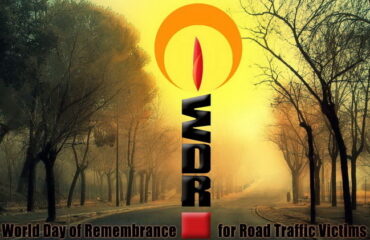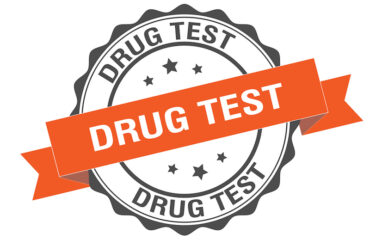Human Trafficking: An Unseen Scourge – Justice Speaks Podcast
In this episode, Justice Speakers Institute (JSI) Founder David Wallace speaks with Kimberly Overton Spahos about Human Trafficking.
Ms. Overton is currently the Chief Resource Prosecutor at the North Carolina Conference of District Attorneys. Her job requires her to train and educate and speak about issues involving the criminal justice system, including the horrific crime of human trafficking.
What is Human Trafficking?
Human trafficking is a global crime and a form of modern day slavery. As a multi-billion dollar enterprise it is interspersed in every country and it impacts us all. No matter where you live, in a large city or a small village the odds of human trafficking and human exploitation occurring near you are fairly high. It doesn’t matter if you are living in a developed country or any other county – it is an international and global scourge.
As a multi-billion dollar criminal enterprise, it is set up as a type of business model where people recruit individuals who ultimately become trapped, and others who transport those victims, and others who are contractors and employers, and the list goes on and on. It is estimated that this “business” affects nearly 30 million people around the world.
Human trafficking can take a variety of forms, but two common types are: 1) sex trafficking, and 2) labor trafficking.
Sex Trafficking
In sex trafficking, girls, women and sometimes men, are forced into prostitution and to doing sex acts against their will. This form of trafficking gets the most highlight, because of the nature of the crime. In the United States, the average age of the victim in sex trafficking is thirteen, and one in three runaways are targeted within the first 48 hours of them running away from home. However, sex trafficking happens everywhere in the world, sadly sometimes even with the support of the victim’s family. These victims may be involved with sex trafficking for a few days, weeks, even years.
Labor Trafficking
The victims in labor trafficking are often given false promises of high-paying jobs or travel opportunities to lure them into horrendous work conditions. Once trapped, they have no way to escape. These victims can find themselves working long hours for very little pay with physical and psychological control being exerted over them.
While this occurs predominately in the agricultural field, it is also happens with the domestic services, such as nannies and maids.
Red Flags to Detect Human Trafficking
While prostitution itself is a potential red flag, if the woman doesn’t speak the native language, that can be a definite red flag. By not speaking the local language, that is one way traffickers can isolate women. Other red flags in sex trafficking include women housed in high security areas with cameras and boarded windows, or seeing a group of people and one person speaking for the whole group and not allowing members of the group to speak for themselves.
In labor trafficking if individuals are not able to come and go as they wish, or if they are paid very little or not at all or just by tips, these are red flags as well.
Typically, none of them are in control of their own money, have no financial records or bank accounts, and often the victims have few or no personal possessions. In fact, they may not even have their own identification documents. Passports, driver’s licenses and other similar documents are routinely held by the traffickers to control them.
Steps to End Human Trafficking
In the United States, the Trafficking Victims Act of 2000 established a number of ways to prosecute human trafficking. Since the year 2000, that act has been reauthorized with funding added to it and additional measures added, such as declaring that trafficking can be prosecuted under the “RICO”[1] statute and allowing victims to sue traffickers civilly.
Globally there is also a recognition and fight to end human trafficking. The United Nations Office on Drugs and Crime is working with countries everywhere to take steps to prevent, suppress and punish global trafficking.
But there are still significant hurdles to overcome. One major step is raising awareness of those in the criminal justice system; prosecutor, judges, law enforcement, and especially the public in general.
Where to Turn for Help and More Information
There are a number of governmental agencies and non-profit organizations designed to help victims of human trafficking and raise the awareness of this horrific and demeaning crime. But the real first step is to recognize that these victims have a variety of needs and those needs have to be addressed, sometimes including very basic needs such as food and clothing.
The United Nations Office on Drugs and Crime has a wealth of information relating to international trafficking and some of the programs they are supporting.
Another great resource is Polaris Project. It is a leader in the international fight and they have links to local resources. The Salvation Army has been focusing on this crime as well with human trafficking caseworkers. Stop Human Trafficking is another similar organization focused on stopping this slavery. Across the country and the globe there are wonderful groups whose sole desire is to end the misery of millions of victims and end human trafficking.
What Can You Do?
First, get the knowledge and understand how this is impacting your community and your nation. There is no community and no nation that is not impacted by this hidden crime. Second, when victims of human trafficking get free, many times they have basic needs. There are organizations that will provide those basic needs, such as food and clothes, but they need support from all of us.
As noted by Ms. Overton in wrapping up:
“But really, this is an outreach that has to occur from the community. And that community mindset and outreach is critical to stop this crime. And that is not just in big cities in the United States, or in small rural towns, it’s all across this world. So we can highlight, globally, this problem. “
This dark global epidemic needs to be brought out into the light of day. It needs all of us to understand how it impacts each and every one of us and it needs all of us to step out and speak up. It is only through a concerted effort that we will successfully end this modern day slavery.
What do you think? Can we end this crime? Let us know in the comments below.
Additional Information on Human Trafficking:
- European Commission – Human Trafficking
- Federal Bureau of Investigation – Human Trafficking
- Polaris Project
- Salvation Army
- Stop Human Trafficking
- United Nations Office on Drugs and Crime
Get more articles like this
in your inbox
Subscribe to our mailing list and get the latest information and updates to your email inbox.
Thank you for subscribing.
Something went wrong.










